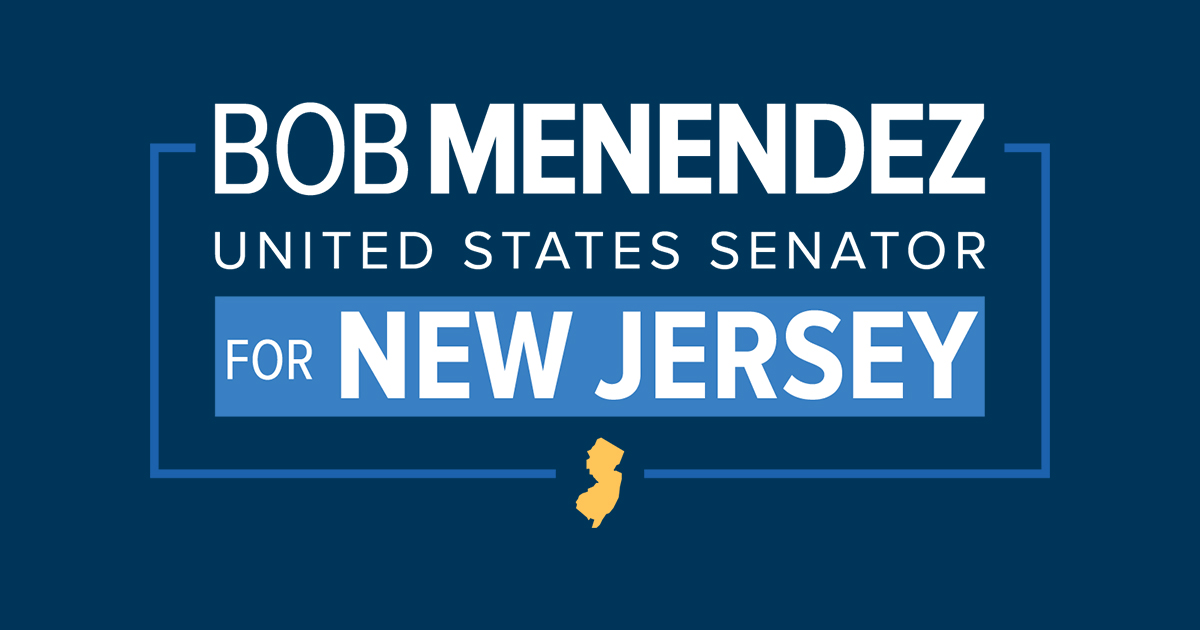Source: United States Senator for New Jersey Bob Menendez
WASHINGTON, D.C. – – U.S. Senator Bob Menendez (D-N.J.) joined with Sens. Elizabeth Warren (D-Mass.), J.D. Vance (R-Ohio), Mark Warner (D-Va.), Chris Van Hollen (D-Md.), Catherine Cortez Masto (D-Nev.), Tina Smith (D-Minn.), Raphael Warnock (D-Ga.), John Fetterman (D-Pa.), Kevin Cramer (R-N.D.), and Katie Britt (R-Ala.), all members of the Senate Banking, Housing, and Urban Affairs Committee, and Sens. Josh Hawley (R-Mo.) and Mike Braun (R-Ind.), to update and introduce the Failed Bank Executives Clawback Act – bipartisan legislation that would require federal regulators to claw back up to three years of compensation received by bank executives, board members, controlling shareholders, and other key decision-makers in the event of a failure or resolution.
“When banks fail, executives should pay the price – not taxpayers. I’m proud to be joining this bipartisan effort to require federal regulators to claw back the compensation of executives that run their banks into the ground,” said Sen. Menendez. “Congress needs to do everything in its power to deter reckless behavior that harms hard-working families and the banking system.”
The Federal Deposit Insurance Corporation (FDIC) currently has limited ability to claw back executive compensation in the event of a bank failure. The bipartisan Failed Bank Executives Clawback Act would give federal bank regulators the tools they need to hold the executives of failed banks responsible for the costs that those failures exact on the rest of the banking system and the economy. Specifically, the legislation would:
- Require the FDIC to claw back from large bank executives all or part of the compensation they received over the three-year period preceding their bank’s failure or FDIC resolution.
- Apply to directors, officers, controlling shareholders, and other high-level persons involved in decision-making of banks with $10 billion or more in assets who caused more than a minimal financial loss to, or had a significant adverse effect on, the bank.
- Direct funds clawed back from executives into the FDIC’s Deposit Insurance Fund.
- Extend claw back authorities established by Section 204(a)(3) of the Dodd-Frank Wall Street Reform and Consumer Protection Act to apply to any bank entered into FDIC receivership, not solely those resolved under the FDIC’s Orderly Liquidation Authority.
Sen. Menendez pressed Gregory Becker, former CEO of Silicon Valley Bank (SVB), and Scott Shay, former chairman and co-founder of Signature Bank, during a banking hearing in May. The Senator highlighted how eleven days before SVB failed under Gregory Becker’s watch, he sold $3.6 million worth of stock pursuant to a 10b5-1 plan filed by Mr. Becker in late January. 10b5-1 plans allow corporate insiders to sell shares by determining in advance the share price, number of shares, and transaction date. Sen. Menendez asked him if he believed he and his colleagues earned the bonuses paid on March 10, 2023, which were approved by SVB’s Compensation Committee to reward executives and employees for their 2022 performance. According to public reporting, these bonuses were paid mere hours before regulators seized the bank.
In May, during another Senate Banking hearing, Sen. Menendez pressed federal financial regulators on their efforts to ensure greater executive accountability and effective supervision in the wake of recent bank failures. The Senator noted that Michael Barr, the Federal Reserve Vice Chair for Supervision, identified in his recent report major weaknesses in Silicon Valley Bank’s incentive compensation program, noting that it encouraged excessive risk taking to maximize short-term financial metrics and did not adequately reflect longer-term performance, nonfinancial risks, or unaddressed audit or supervisory issues.
In late March, Sen. Menendez led a bipartisan group of Senate Banking colleagues in pressing Federal Reserve Chair Jerome Powell on the agency’s use of enhanced supervision and prudential standards for SVB. He also signed a letter led by Chair Sherrod Brown to Securities and Exchange Commission (SEC) Chair Gensler requesting prompt examinations of Silicon Valley Bank’s purportedly selling millions of dollars’ worth of company stock in the days and months leading up to SVB’s failure.
In response to the recent bank failures, Sen. Menendez joined dozens of Senate and House colleagues to introduce the Secure Viable Banking Act, legislation that would repeal Title IV of S.2155, the Economic Growth, Regulatory Relief, and Consumer Protection Act of 2018, and increase prudential standards for banks similar to Silicon Valley Bank and Signature Bank. Sen. Menendez is a longtime advocate for prudent financial regulation, and was outspoken about the dangers of passing S.2155 five years ago, which reduced critical oversight and capital requirements for large banks.
For a copy of the legislation click HERE.
###
